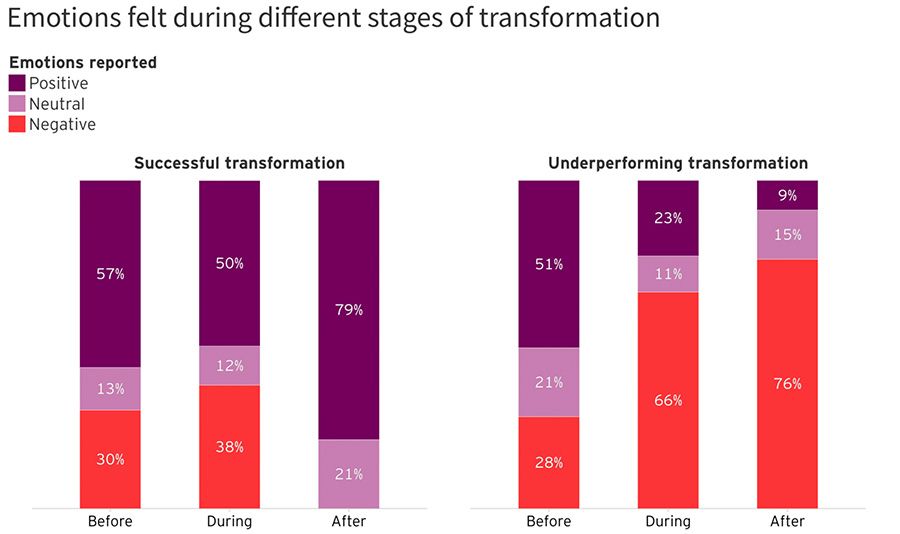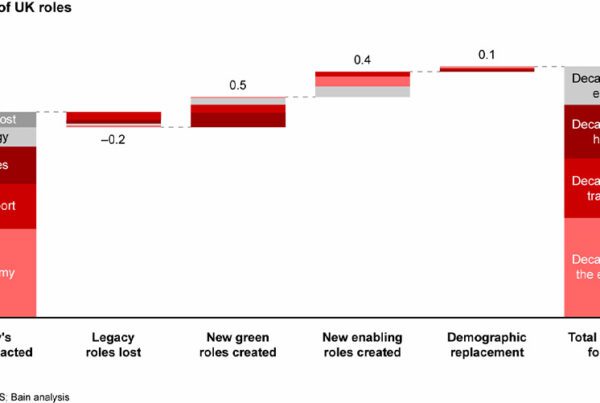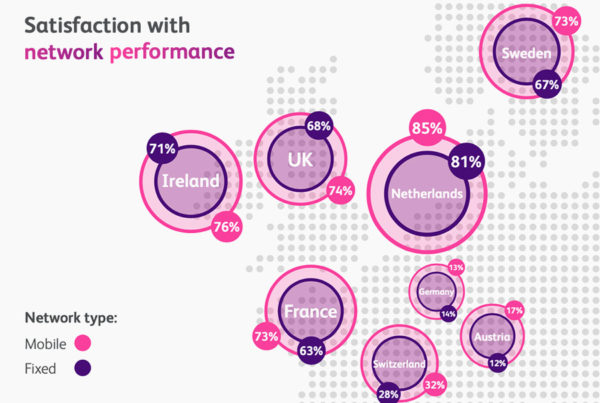Business transformations remain at the top of the corporate agenda, with nearly nine-in-ten senior leaders overseeing them in the last five years – and most have seen one fail in the same time. While the financial costs of these problem projects have often been lamented, however, little is made of the huge mental health toll this may be taking on workers; with a majority enduring negative emotional responses during a struggling transformation.
Even with the UK’s extended social distancing measures fading into the distance, the Covid-19 pandemic is continuing to have a profound impact on the mental health of the country’s workforce. In this context, many businesses have sought to be perceived as prioritising staff wellbeing – particularly as they look to court key talent, amid a tightening labour market.
Whether firms actually practice what they preach is a matter for discussion, however. Many are still pushing ahead with business strategies that actively place their workforce in the path of greater stress – while not providing adequate support.

According to a recent survey by EY and the University of Oxford’s Saïd Business School, 85% of senior leaders have been involved in two or more major transformations in the last five years alone. Even on occasions where these projects have succeeded, they have placed large amounts of strain on their workforce – 38% of workers at companies performing a transformation said they encountered sustained bouts of negative emotions – but the fact is that many transformations do not succeed at all.
The poll found that 67% of bosses surveyed said they had experienced at least one underperforming transformation during the same time. In those cases, workers encounter negative emotions defined as being “stressed, tense, upset, nervous, depressed, sad” at heightened rates. Close to one-third are in such a position before the transformation begins, but this soon doubles during the change campaign. After an underperforming transformation shift concludes, meanwhile, a majority of 76% continue to feel those emotions – leaving a lasting impact on their mental health, and subsequently their productivity.
In exploring what may be behind this, one cause EY identified was the approach bosses took to struggling transformations. Rather than treating change as an opportunity to support staff and improve their skillsets, many seem to treat a struggling campaign as a ‘fat-trimming’ exercise.
In the free-text analyses, many workers involved in underperforming transformations meanwhile said they felt unheard, unsupported and stressed – both during and after the transformation. Instead, many staff who did not adapt quickly seem to have been blamed for struggling transformations, and asked to leave – as indicated by the fact that in EY’s study, 50% of workers who experienced an underperforming transformation agreed that ‘transformation’ was simply another word for ‘layoffs’.
Commenting on how leaders might better build for success, Liz Fealy, EY Global People Advisory Services Deputy Leader, said, “For new ways of working to be successful, leaders and workers need to collaborate to redefine the balance of delegation, ownership and empowerment.”




